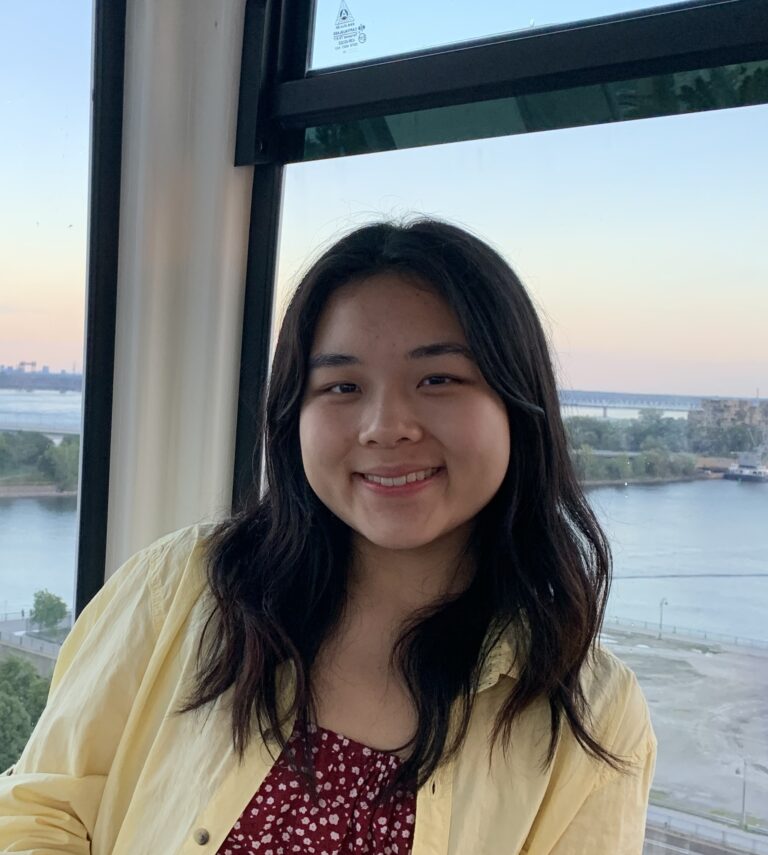Kristine Zheng
Major in Computation and Cognition
Minor in Women’s & Gender Studies

What’ve you enjoyed most about your area of study? Was there a particular discovery, new skill or way of thinking, or insight that you found especially valuable? Please share an example from your favorite class or experience.
I have greatly enjoyed the breadth of topics in WGS and its intersections with other areas including history, arts, anthropology, and more. My classes have opened my eyes to understand how various people, communities, and institutions interact – for example, I learned about numerous marginalized groups who are disproportionately affected by environmental injustice, and public health crises in WGS.275/STS.022. I’ve also explored my own gender and racial identity through various course projects and discussions. One of the most valuable skills I’ve acquired is conducting interviews and research in this field, allowing me to apply my knowledge practically. Currently, I am working on a project examining the history of activism at MIT for my course WGS.303 Gender: Historical Perspectives.
How does the knowledge from this field, or your interest in it, combine with your other major or minor studies at MIT?
WGS has shaped how I view my career as a scientist and the roles of science, technology, and institutions in society. In my current project on the history of activism, I had the opportunity to engage with professors from various disciplines, discussing how their activism and social impact intersect with their academic careers (I hope to do the same in the future). Additionally, through combining WGS with my studies in computer science and brain & cognitive sciences, I have developed a critical eye for assessing the ethics, inclusivity, and impact of research projects and publications. I work in the intersection of brain sciences and AI models, so it is very important to fully evaluate the implications of my research.
An MIT education includes study in the scientific, technical, social science, arts, and humanities fields. How do you think that wide range of knowledge and perspectives will be valuable to you – for your career success and for your enjoyment of life?
My education at MIT has been incredibly well-rounded, encompassing coursework and research across numerous disciplines While more technical courses have given me tools to plan my future, my SHASS courses have helped me understand my role in the world and diverse perspectives. My academic and nonacademic experiences at MIT enabled me to meet many wonderful peers and have tremendously fulfilling conversations and collaborations. In my undergrad, almost any project or opportunity I have wanted to pursue, I have known about resources and mentors to do so. Looking into the future, I am very grateful to have the technical knowledge and communication skills to tackle challenging problems while still being grounded to the impact on other people and society.
What are your plans for the future?
I will be a IRiSS predoc fellow in the Stanford Psychology department and plan to apply to graduate programs. More long term, I aim to apply my research to applications in education, engineering, and more!
